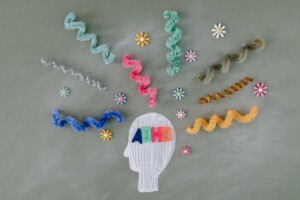 There is no “medical” test that can determine whether someone has Attention-deficit/hyperactivity disorder (ADHD). Unfortunately, that leaves many people going without an official diagnosis for themselves or their children for far too long.
There is no “medical” test that can determine whether someone has Attention-deficit/hyperactivity disorder (ADHD). Unfortunately, that leaves many people going without an official diagnosis for themselves or their children for far too long.
While ADHD is often considered a child’s condition, many adults continue to deal with it or get diagnosed at a later age simply because they didn’t get tested as a kid.
So, if there’s not some kind of blood draw or scan for it, how do you get tested? How can you receive a diagnosis for yourself or your child, and when should you seek one out?
How Is ADHD Diagnosed?
Again, there’s no medical exam typically involved in an ADHD diagnosis. Rather, healthcare providers look at common symptoms associated with the disorder — in children and adults.
ADHD can be diagnosed by a pediatrician or primary care provider. It can also be diagnosed by a mental health professional, including a psychologist or psychiatrist.
There’s a reason that most professionals won’t haphazardly diagnose someone with ADHD. It’s important to rule out other potential causes for the symptoms, in which case other medical tests may be appropriate. Once other conditions are off the table, all providers should utilize the American Psychiatric Association’s Diagnostic and Statistical Manual to properly diagnose ADHD in both adults and children.
What Are the Symptoms of ADHD in Children?
Most people assume that a child with ADHD is always hyper and has a hard time paying attention to things. While those can be common symptoms, there’s often more to a diagnosis than that. Some of the most common signs of it in children include:
- Short attention spans
- Difficulty concentrating for long periods of time
- Forgetfulness
- Having difficulties listening or following through on certain tasks
It’s typically not enough for a child to just experience one of these symptoms to be diagnosed with ADHD. Rather, they should exhibit several, and the symptoms should last for at least 6 months before an official diagnosis is made. You can talk with your child’s doctor about the specifics of what is required for a diagnosis, as well as other potential causes for these behaviors.
What Are the Symptoms of ADHD in Adults?
While you don’t really “develop” ADHD later in life, you might have gone through your childhood without ever getting properly diagnosed.
Some of the symptoms of ADHD are similar in adulthood. But, they can look different based on your ability to control them. For example, adults with ADHD might deal with things like impulsivity, forgetfulness, and a lack of focus. You might also take more risky behaviors than the average person, or even wear others out with your hyper behavior.
As an adult, you might be more willing to seek out a diagnosis and treatment because you’re tired of your condition impacting your career, your schoolwork, or your relationships. You might feel like you can control some of your symptoms, but ADHD is rarely something you can take hold of on your own.
What Should You Do?
If you have a child with several of the symptoms listed above and the signs have been noticeable for months, talk to their pediatrician and consider getting an official ADHD diagnosis.
As an adult, consider talking to your general practitioner. Or, seek out the help of a mental health professional. While you shouldn’t tackle ADHD on your own, that doesn’t mean it isn’t manageable at any age. Often, a combination of medication and therapy techniques can help you feel like you’re in the driver’s seat, rather than letting your condition control your thoughts and behaviors.
Feel free to Contact Us for more information or to set up an appointment soon.
